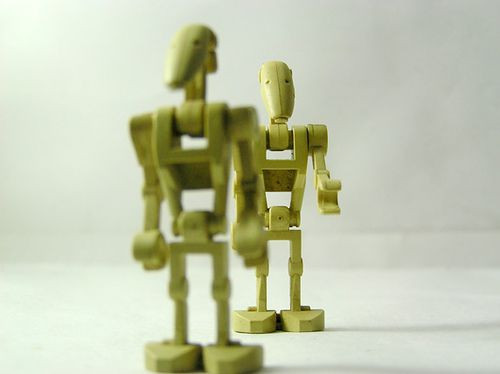Déjà Vu And Its Relatives: How Simple Mistakes Of Memory Could Signal Deeper Neurological Problems

Life comes with some pretty big questions. Why are we here? What’s the meaning of it all? How much shampoo is enough? Among those, and one that scientists have been struggling to answer since the early 20th century is: What is déjà vu? And more critically, what can it tell us about brain health? The jury is still out on that one, but with the phenomenon’s investigation, researchers have unearthed several other phenomena that may help explain that unsettling sense of the familiar.
Déjà vu, in case you’ve had no life experience to draw upon, is the sensation of somehow reliving a past moment — the fleeting sense that you’ve been here before, even if you can’t pinpoint it. By the time you think you’ve figured it out, often the sensation has passed, and you’re left utterly befuddled. And if someone else is around, you’ll probably tell the person about your déjà vu. (Why can’t we just keep it to ourselves?)
This much is obvious, but in their plunge down the rabbit hole scientists have discovered other forms of memory glitches. Ever heard of jamais vu? Maybe you have, but just don’t remember. What about presque vu? Your ears may recognize it, even if your brain doesn’t at first, in which case you may be experiencing déjà entendu.
Déjà Vu All Over Again
The prevailing theories as to why we get déjà vu deal mostly in the way our brains recall memory. Though the total number of speculations is in the dozens, ever since the French philosopher and parapsychologist Emile Boirac first used the term in 1876, there are perhaps three main theories that cognitive scientists draw upon.
Imagine you’re on a date. You’re going miniature golfing. On the first hole, your date — a grade-A klutz — whacks the ball off the course, sending it bouncing around the better part of the front nine. In a strange mix of disappointment and shock, you watch the ball careen off rocks and tiny windmills, and suddenly, you’re hit with déjà vu. You search and search the inside of your mind to locate the memory, but you can’t. What’s going on?
The first theory suggests your brain is undergoing something called “dual processing.” Broadly speaking, when we take in life experiences, our brains stitch together individual pieces to create a whole picture. Generally this happens in harmony, but the dual process theory states that one piece may fall out of alignment. You see the neon orange ball bouncing, your date frantically running after it, and the concerned faces of other golfers, and for whatever reason, the image of the ball bouncing got tripped up somewhere. You process the other two while your brain plays catch-up with the third, in effect registering it as a memory of a past experience, aka "déjà vu."
The other two theories deal with how you process specific items in real-time. The second, known as hologram theory, suggests the orange golf ball triggered an actual memory you had, maybe as a kid going miniature golfing, causing your brain to implant that memory onto the present circumstance. So, you get déjà vu. The last theory, divided attention, relies on your brain’s inability to focus on all things at once as a means to momentarily “forget” about other actions happening in real-time. You were so busy focusing on the golf ball that you briefly forgot about your date. But as you regain awareness, the entire sequence of events rushes back as familiar because your memory convinces you you’ve been there before — because you kind of have.
Signposts For Trouble
If the science behind déjà vu is murky, it’s downright opaque when it comes to understanding if we should be worried about it. Luckily, researchers over the years have discovered other forms of memory impairments, which do come with concrete diagnoses.
Consider jamais vu. Think of it as the opposite of déjà vu. Rather than being convinced you’ve experienced something before, now you’re certain the experience is unfamiliar, even though it may be a part of your daily life, like tying your shoelaces or pouring a bowl of cereal. The sensation has been linked with epilepsy, aphasia, and amnesia. Temporal lobe epilepsy, in particular, a form of the disorder found in the brain region responsible for memory retention and emotion, carries an association with jamais vu.
Presque vu, otherwise referred to as “tip of the tongue” moments, produce feelings of borderline epiphany, as if the correct word or name is just waiting to be said. Temporary and sporadic bouts of presque vu are harmless, but experts caution people whose tip-of-the-tongue sensations keep recurring, as they could be signs of dyslexia or anomic aphasia (the inability to recall words). Typically, presque vu follows heavy drug use and aging, sometimes arising from certain emotional states as well.
Your boilerplate episode of forgetfulness is nothing to worry about. People have brain farts all the time, despite how downright maddening they can be. Déjà vu is so visceral, in fact, that your brain can intelligently understand an absurd memory is false, but still be just gullible enough to recognize it as familiar. Frustrating, for sure — but maybe also a refreshing break from the doldrums of daily life, or at least a respite from a miniature golf date gone bad.



























